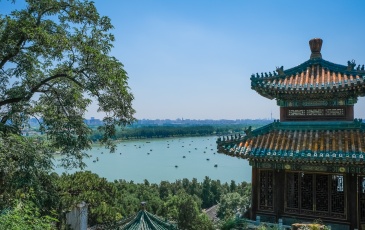August 31 | 5:00 - 6:00 p.m. (Pacific Time)
August 31 | 8:00 - 9:00 p.m. (Eastern Time)
September 1 | 8:00 - 9:00 a.m. (Beijing Time)
CLICK HERE TO REGISTER!
New research from The California-China Climate Institute provides an overview of international best-practices in addressing short-lived climate pollutants. Short-lived climate pollutants, or SLCPs, like methane, black carbon, or ozone, remain in the atmosphere for shorter periods of time yet still contribute to planetary warming. The latest science from the Intergovernmental Panel on Climate Change indicates that it is essential to also address these short-lived pollutants - in addition to carbon dioxide - to help meet the 1.5 degree Celsius threshold to avert the worst impacts of climate change.
The new report, “Opportunities to Tackle Short-lived Climate Pollutants and other Greenhouse Gases: Global Best Practices and Recommendations for China,” describes quantitative modeling scenarios used to identify pathways for cost-effective emissions reductions over the near, medium, and long-term.
Through presentation and discussion, our panel of climate policy experts shared their reflections on best-practices and opportunities to reduce short-lived climate forcers in China.
AGENDA
5:00pm Welcome and Speaker Introductions by Ken Alex, Project Climate, UC Berkeley
5:05pm Presentation: Short-Lived Climate Pollutants
Jiang Lin, Lawrence Berkeley National Laboratory
Nina Khanna, Lawrence Berkeley National Laboratory
5:25pm Expert Commentary and Discussion
Prof. Jianxin Hu, Peking University
Matthew Botill, California Air Resources Board
5:40pm Q&A
5:55 - 6:00 p.m. Recap & Closing Remarks by Ken Alex, Project Climate, UC Berkeley

